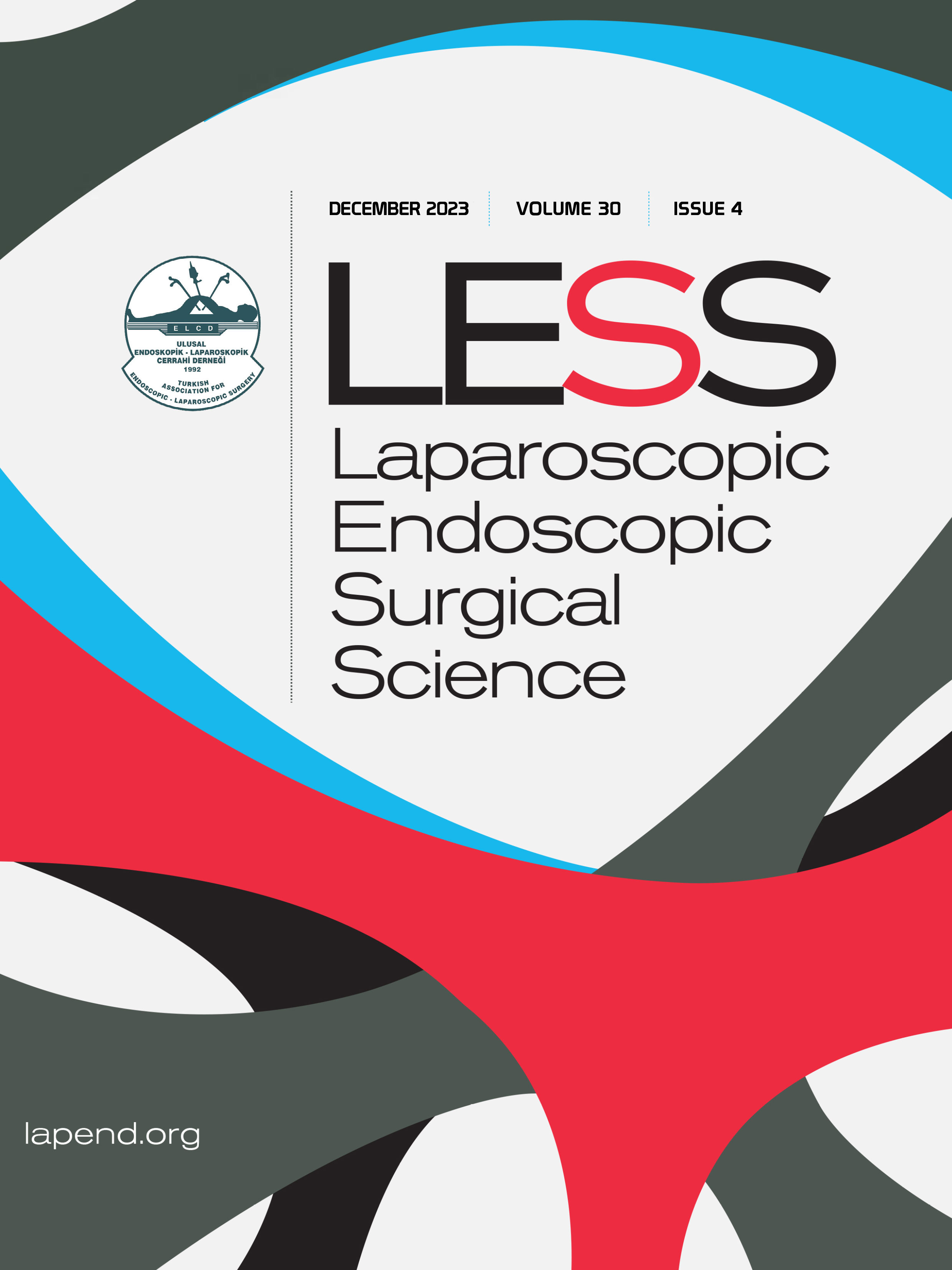Early results of colorectal cancer treated with robotic surgery: A single-center experience
Yılmaz Özdemir1, Ayetullah Temiz21Department of Gastroenterology Surgery, Health Sciences University, Erzurum Regional Training and Research Hospital, Erzurum, Turkey2Department of General Surgery, Health Sciences University, Erzurum Regional Training and Research Hospital, Erzurum, Turkey
INTRODUCTION: Colorectal cancer is the third most common cancer among adults and one of the most common malignancies seen in developed countries. The use of robotic surgical systems in minimally invasive procedures has many potential advantages. Unlike the two dimensional (D) visual images provided by modern laparoscopic systems, robotic systems provide a continuous 3D image and a sense of depth, especially for surgeons familiar to traditional open surgery. In this study, it was aimed to present the early results of patients who underwent robotic surgical resection for colorectal cancer
METHODS: The patient files of 33 colorectal cancer patients, who had been treated with robotic surgery, between September 2015 and June 2019, were retrospectively reviewed. Age, gender, tumor location, surgery performed, duration of surgery, intraoperative blood loss, post operative histopathological findings, length of hospital stay, morbidity, and mortality were recorded.
RESULTS: The mean age of the patients was 66.78±12.11 years. Of the patients, 17 (51.5%) were male. The rectum was the most common localization (66.5%). The most common procedure performed was low anterior resection (n=12). The mean blood loss was 195.45±62.95 mL and the mean operative time was 315.24±92.40 min. No complications developed intraoperatively in any of the patients. A total of four patients were converted to open surgery. Post-operative complications occurred in three patients. The average length of stay was 6.22±1.08 days. In the histopathological evaluation, the mean total number of lymph nodes removed was 15.8±3.4, and the mean number of pathological lymph nodes was 1.54±0.6. The most common tumor stage was, Stage 3 (48.4%). There was no positive surgical margin in any of the patients.
DISCUSSION AND CONCLUSION: Due to the articulating instruments and advanced imaging technology used in robotic surgery, dissection of the tissues for total mesorectal excision can be performed more easily and effectively in colorectal cancers. In this way, better quality resection and lymph node dissection can be performed and more accurate staging and appropriate oncological results can be obtained.
Corresponding Author: Yılmaz Özdemir, Türkiye
Manuscript Language: English












